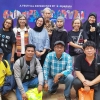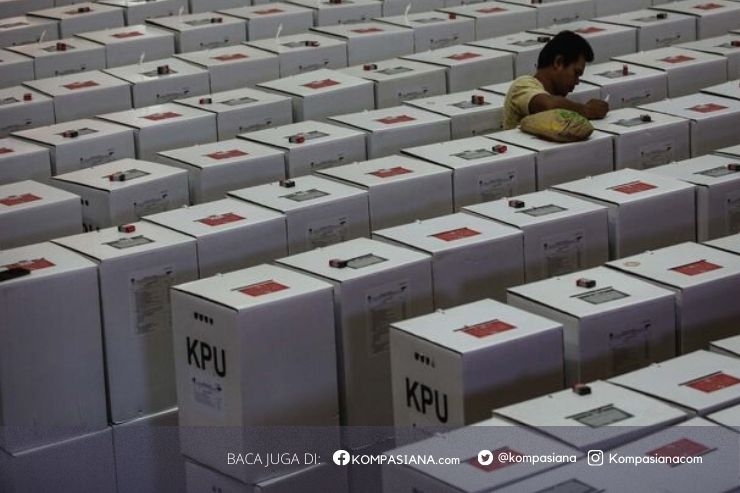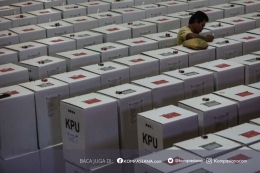Ethical Scrutiny of Bahlil's Doctoral Degree
The recent controversy surrounding the ethics of Bahlil's doctoral degree has ignited a fervent debate within academic circles and the broader public. As an academic writer, I aim to explore the complex ethical considerations that underlie this issue, drawing insights from the existing literature and the unique contextual factors at play.
The process of obtaining a doctoral degree is inherently multifaceted, involving intricate challenges related to interpretation, representation, and legitimation (Danaher, 2008). Scholars have highlighted the need for transparency and rigor in the assessment of creative writing doctoral theses, as well as the ethical dilemmas that arise during the examination process (Kroll & Webb, 2012).
In the case of Bahlil's degree, the ethical scrutiny extends beyond the individual achievement, as it is inextricably linked to the broader societal implications. Ethical reviews of PhD research often grapple with the limitations of conventional conceptions of research ethics, particularly in the context of the Global South (Millora et al., 2020). The notion of reciprocity, reflexivity, and situatedness become crucial in navigating the complex power dynamics and cultural nuances that shape the doctoral journey.
Moreover, the growing public awareness and insistence for answers regarding the appropriate conduct of doctoral programs (McAlpine & Norton, 2006) further amplify the need for a comprehensive examination of Bahlil's case.
As the academic community and the general public await the forthcoming ethics hearing, it is essential to approach this issue with a nuanced understanding of the multifaceted ethical considerations at play.
The ethical scrutiny of Bahlil's doctoral degree must go beyond the individual case and examine the systemic issues that may have enabled or facilitated the potential ethical breaches. By engaging in such a discourse, we can strive to uphold the integrity of the doctoral degree and ensure that the pursuit of academic excellence is aligned with the highest ethical standards.
Ultimately, the ethical hearing on Bahlil's doctoral degree will serve as a critical juncture in addressing the broader concerns surrounding the transparency, rigor, and ethical foundations of the doctoral education system.
The ethical review process must go beyond a mere checklist-like approach and delve into the deeper complexities of the research context, power dynamics, and the unique challenges faced by doctoral candidates, especially in the Global South (Millora et al., 2020).
By critically examining this case, we can contribute to the ongoing discussions on reframing the approach to doctoral programs and strengthening the ethical framework that underpins the doctoral education landscape.
Drawing from the insights provided in the sources, the ethical considerations in Bahlil's doctoral degree must be examined through a multidimensional lens.
Ethical reviews of doctoral research often grapple with the limitations of conventional conceptions of research ethics, particularly in the context of the Global South (Millora et al., 2020).
References
Danaher, P. A. (2008). Writing Issues in Designing Doctoral Research: Interpretation, Representation, Legitimation and Desiring in Investigating the Education of Australian Show People. In P. A. Danaher,
International Journal of Pedagogies and Learning (Vol. 4, Issue 2, p. 29). Taylor & Francis. https://doi.org/10.5172/ijpl.4.2.29
Kroll, J., & Webb, J. (2012). Policies and Practicalities: Examining the Creative Writing Doctorate. In J. Kroll & J. Webb, New Writing (Vol. 9, Issue 2, p. 166). Taylor & Francis. https://doi.org/10.1080/14790726.2012.665930
McAlpine, L., & Norton, J. (2006). Reframing our approach to doctoral programs: an integrative framework for action and research. In L. McAlpine & J. Norton, Higher Education Research & Development (Vol. 25, Issue 1, p. 3). Taylor & Francis. https://doi.org/10.1080/07294360500453012
Millora, C., Maimunah, S., & Still, E. (2020). Reflecting on the ethics of PhD research in the Global South: reciprocity, reflexivity and situatedness. In C. Millora, S. Maimunah, & E. Still, Acta Academica Critical views on society culture and politics (Vol. 52, Issue 1, p. 10). University of Pretoria. https://doi.org/10.18820/24150479/aa52i1/sp2
Baca konten-konten menarik Kompasiana langsung dari smartphone kamu. Follow channel WhatsApp Kompasiana sekarang di sini: https://whatsapp.com/channel/0029VaYjYaL4Spk7WflFYJ2H







